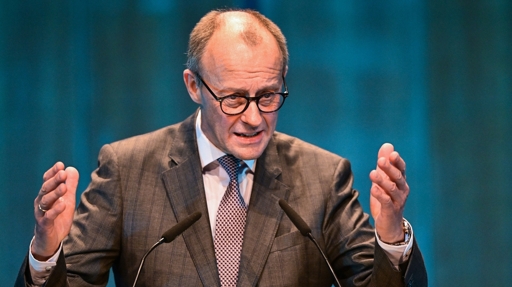German Chancellor Friedrich Merz has called on the EU to use frozen Russian assets to provide Ukraine with a €140 billion loan to demonstrate “staying power” against Russian aggression.
Source: Merz in an article for the Financial Times, as reported by European Pravda
Details: In a sharp departure from Germany’s initial scepticism about using frozen Russian assets, Merz stated that the loan should be used to fund military equipment, with EU governments deciding on purchases together with Kyiv.
In the article, Merz insists that the EU must find a legal mechanism for utilising the assets and says it is necessary to “systematically and massively raise the costs of Russia’s aggression”.
According to Merz, the EU can offer an interest-free loan of nearly €140 billion “without intervening in property rights”.
“That loan would only be repaid once Russia has compensated Ukraine for the damage it has caused during this war,” said the German head of government.
He urged the use of Russian assets on a scale “that will secure Ukraine’s military resilience for several years”.
Merz emphasised that the funds must be used exclusively for the purchase of military equipment and not for covering Ukraine’s general budget.
Quote: “Such a comprehensive programme must also help to strengthen and expand the European defence industry. That would serve both our collective security and European sovereignty.”
Details: The chancellor’s proposal suggests that the loan would initially be guaranteed by EU member states and then secured by collateral from the next long-term EU budget for 2028.
He believes this mechanism should be approved by a majority of EU member states.
Quote: “Now is the moment to apply an effective lever that will disrupt the Russian president’s cynical game of buying time and bring him to the negotiating table.”
More details: Frozen Russian assets largely consist of European, US and UK government bonds held in Euroclear, the European securities depository in Belgium. Brussels is now working to unlock a portion of these funds starting next year.
Read more: A €70 billion idea: what the EU’s new initiative on frozen Russian assets changes
Background: Media have previously reported that under one of the proposals, Europe would effectively loan these assets to Kyiv while promising to cover any losses suffered by Euroclear. If Russia does not pay reparations to Ukraine at the end of the war, the EU would simply have to maintain sanctions to avoid having to choose between confiscating the assets or compensating Euroclear.
Support Ukrainska Pravda on Patreon!
From Ukrainska Pravda via this RSS feed


